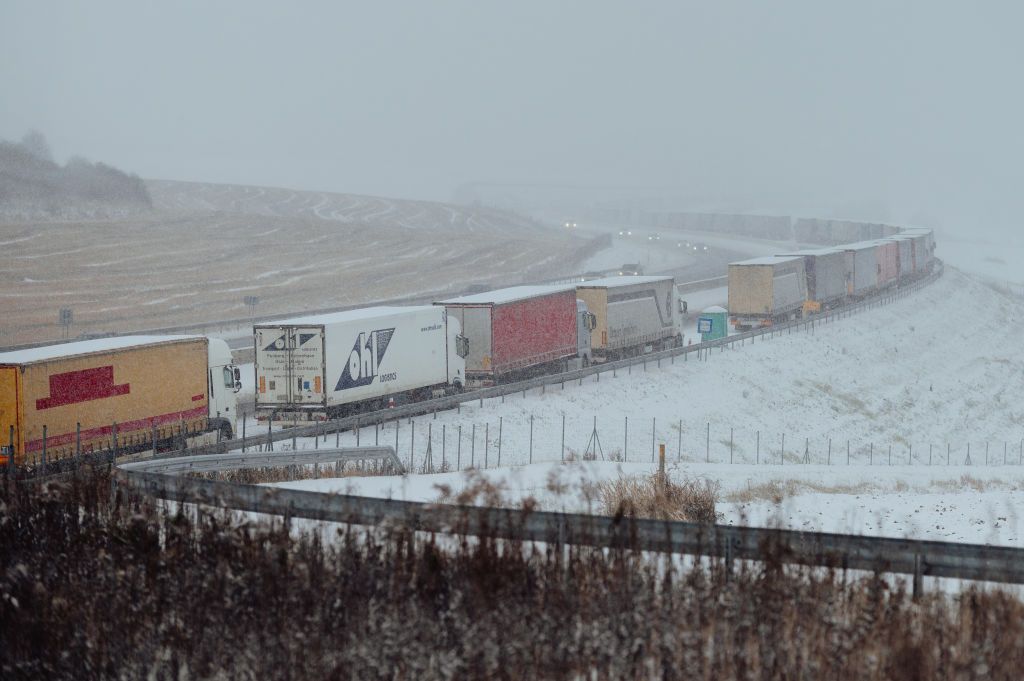Lawmaker: Exports through Ukraine-Poland border down by 40% due to blockade

The blockade at the Polish-Ukrainian border caused a 40% decrease in Ukrainian exports through the relevant checkpoints, Danylo Hetmantsev, the chairman of the parliamentary finance committee, said on Dec. 5.
Polish protesters began blocking trucks at three border crossings on Nov. 6. Four checkpoints have been blocked so far, with severe fallout for Ukraine's economy.
"(The blockade) is a powerful blow to Ukraine's economy and export," Hetmantsev said on television.
"We have a 40% decrease in exports through the relevant land border crossings."
Ukraine has also lost Hr 9.3 billion ($254 million) due to unpaid customs tolls in November, Hetmantsev added.
The Federation of Employers of Ukraine, an industry association, put the direct losses to the country's economy at around 400 million euros ($437 million) as of Nov. 22.
Taras Kachka, Ukraine's trade representative, said that Ukrainian exports by truck over the first 26 days of November were $465 million, down from $614 million in October.
The blockade poses risks to Ukraine's retail market and fuel supply. Ukrainian officials also complained of disruptions in humanitarian and military aid supplies, even though Polish protesters said they were only blocking commercial transport.
Talks between Kyiv and Warsaw on Dec. 1 brought some results, as the parties agreed to open the Uhryniv-Dolhobychuv checkpoint for empty trucks with a weight above 7.5 metric tons.
Other steps agreed on between Ukraine and Poland included creating separate electronic passes for empty vehicles at the Yahodyn-Dorohusk and Krakivets-Korczowa crossing points and launching a pilot electronic queueing system.
Warsaw said it also wants to restore the permit system, one of the key demands of the protesters. The European Commission opposes such a step and said it aims to preserve the transport visa-free regime with Ukraine.















